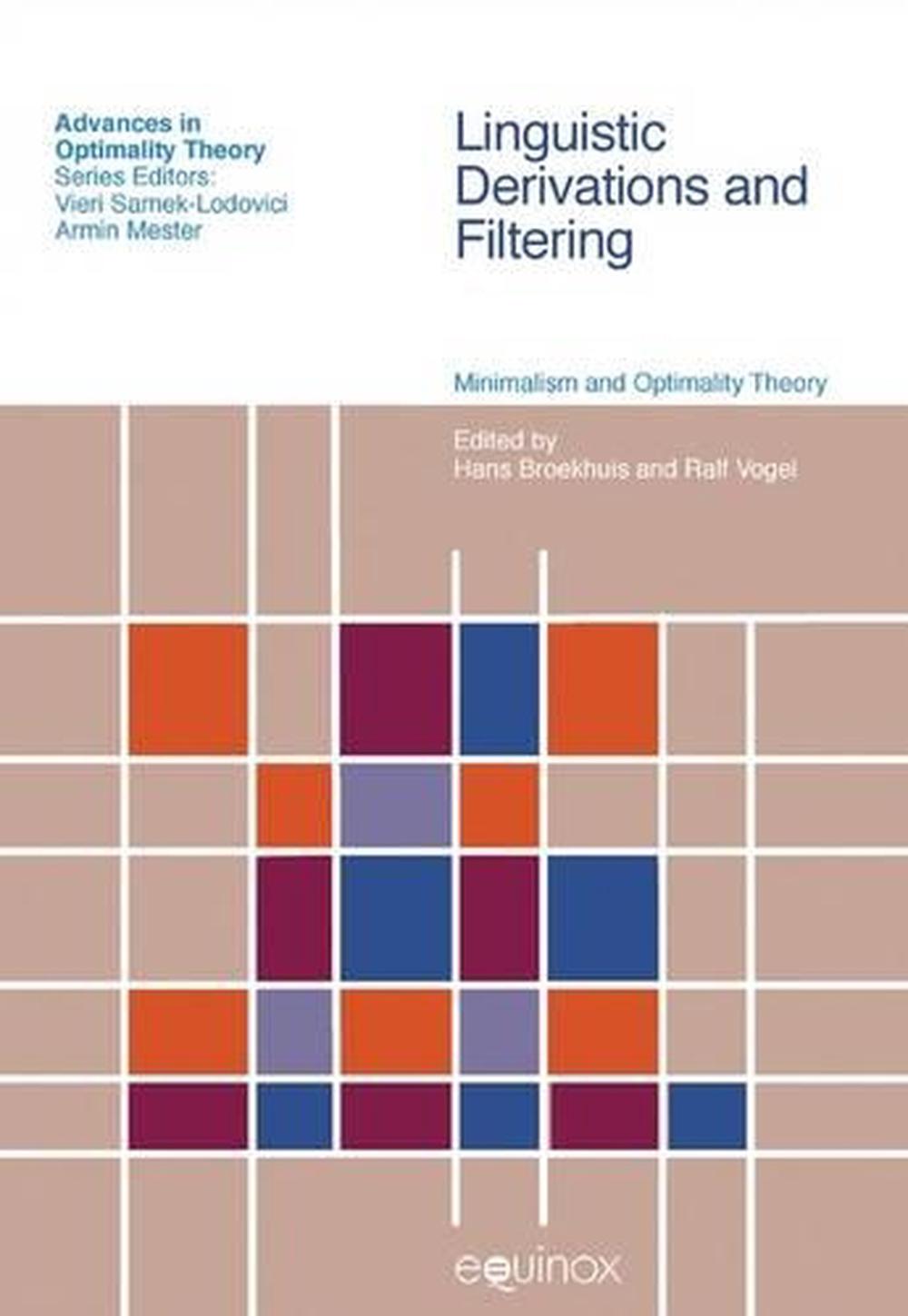
Linguistic Derivations and Filtering
by Hans Broekhuis, Ralf Vogel
This volume focuses on the role of the postulated derivational and filtering devices in current linguistic theory and aims to promote the exchange of ideas between the proponents of MP and OT in order to evaluate the role of these devices in the two frameworks.
Hardcover
English
Brand New
Publisher Description
This volume focuses on the role of the postulated derivational and filtering devices in current linguistic theory and aims to promote the exchange of ideas between the proponents of MP and OT in order to evaluate the role of these devices in the two frameworks. It sheds more light on the tenability of the often proclaimed opinion that MP and OT are incompatible frameworks given that the explanatory power of the former mainly resides on the generative device whereas the explanatory power of the latter mainly resides in the filtering device. Papers from various perspectives discuss and compare the two devices in the two frameworks. The volume thus collects a large number of the arguments in favour of more a strictly derivational approach, a more strictly filtering approach, or a more hybrid approach. The book will be of interest to any researcher or advanced student in Linguistic Theory. It is more specifically directed to syntacticians working within the current frameworks that have developed from Chomsky's minimalist program (MP) and Prince and Smolensky's Optimality Theory (OT).
Author Biography
Hans Broekhuis has worked as a researcher and assistant professor at the University of Amsterdam, the University of Tilburg, University Leiden and, currently, the Meertens Institute in Amsterdam. His theoretical work is mainly conducted within the principles-and-parameters framework. More recently he developed a more hybrid framework, which combines certain properties of the minimalist program and optimality theory (Derivations and evaluations: Object shift in the Germanic languages, Mouton de Gruyter, 2008). Ralf Vogel is professor of German linguistics at the University of Bielefeld. He mainly works within the framework of generative grammar, focusing on syntax and its interfaces with semantics and phonology, and their modeling within optimality theory. More recent work is dealing with the syntax-prosody interface and with the integration of advanced methods of empirical linguistic research with grammatical theory. He is co-editor of Minimality Effects in Syntax (with Artur Stepanov and Gisbert Fanselow, Mouton de Gruyter, 2004) and Gradience in Grammar: Generative Perspectives (with Gisbert Fanselow, Caroline Fery and Matthias Schlesewsky, Oxford University Press, 2006).
Table of Contents
Hans Broekhuis & Ralf Vogel: Introduction: Derivations and Filtering in the Minimalist Program and Optimality Theory Part 1: Combining MP with an OT-Evaluation 1. Hans Broekhuis: Derivations and Evaluations 2. Gema Chocano (Universidad Autonoma de Madrid) & Mike Putnam: Filing in the Gaps: PF-Optimalization in Parasitic Gap Constructions in Dutch and German 3. Martin Salzmann (Universitat Zurich): On Three Types of Variation in Resumption - Evidence in Favour of Violable and Ranked Constraints Part 2: Local and Global Optimization 4. John McCarthy & Kathryn Pruitt (both at University of Massachusetts): Sources of Phonological Structure 5. Fabian Heck & Gereon Muller (both at Universitat Leipzig): Extremely Local Optimization 6. Ellen Woolford (University of Massachusetts): Aspect Splits and Parasitic Marking 7. Eva Engels & Sten Vikner (both at University of Aarhus): Derivation of Scandinavian Object Shift and Remnant VP-Topicalisation Part 3: Optimal Design, Economy and Last Resort in OT 8. Vieri Samek-Lodovici (University College London): Optimality Theory and the Minimalist Program 9. Ralf Vogel: The Trivial Generator 10. Jane Grimshaw (Rutgers University): Last Resorts: A Typology of Do-Support Part 4: The Role of the Interpretive Components 11. Hedde Zeijlstra (University of Amsterdam): Hard and Soft Conditions on the Faculty of Language: Constituting Parametric Variation 12. Kleanthes Grohmann (University of Cyprus): Spell-Out Rules: Ranked Competition of Copy Modification
Long Description
This volume focuses on the role of the postulated derivational and filtering devices in current linguistic theory and aims to promote the exchange of ideas between the proponents of MP and OT in order to evaluate the role of these devices in the two frameworks. It sheds more light on the tenability of the often proclaimed opinion that MP and OT are incompatible frameworks given that the explanatory power of the former mainly resides on the generative device whereas the explanatory power of the latter mainly resides in the filtering device. Papers from various perspectives discuss and compare the two devices in the two frameworks. The volume thus collects a large number of the arguments in favour of more a strictly derivational approach, a more strictly filtering approach, or a more hybrid approach. The book will be of interest to any researcher or advanced student in Linguistic Theory. It is more specifically directed to syntacticians working within the current frameworks that have developed from Chomsky's minimalist program (MP) and Prince and Smolensky's Optimality Theory (OT).
Details

